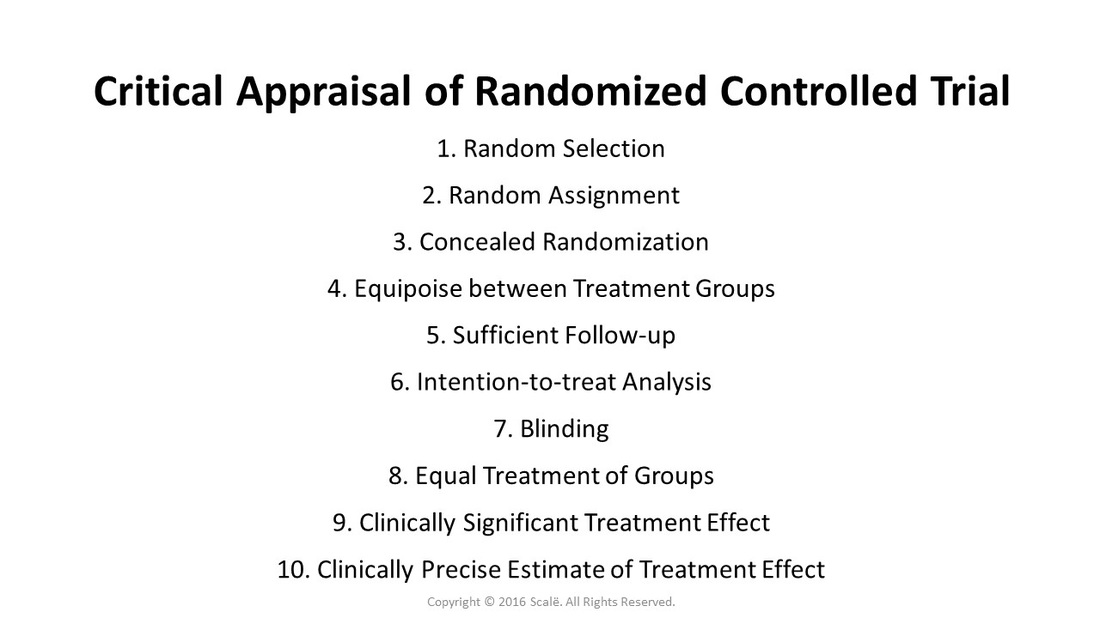Appraising randomized controlled trial evidence
Assess experimental benchmarks for causal treatment effects
There are certain empirical benchmarks that RCTs must meet in order to generate causal effects. If any of these experimental benchmarks are not met, the validity of the treatment effect rendered from the study is questionable, especially as it relates to your patient.
Appraisal criteria for randomized controlled trial evidence
After reading the article, ask the following questions:
1. Were the study participants randomly selected from the population of interest?
2. Were study participants randomly allocated to either the treatment or control group?
3. Was the randomization concealed?
4. Were the groups similar at the start of the trial in regards to prognostic factors?
5. Was the follow-up for outcomes sufficiently long and complete given the clinical and prognostic context?
6. Were all patients analyzed in the groups to which they were randomized (intention-to-treat)?
7. Were patients, clinicians, and study personnel kept blind to treatment?
8. Were the treatment groups treated equally, with the exception of the experimental therapy?
9. Was the treatment effect clinically significant?
10. How precise is the estimate of the treatment effect?
1. Were the study participants randomly selected from the population of interest?
2. Were study participants randomly allocated to either the treatment or control group?
3. Was the randomization concealed?
4. Were the groups similar at the start of the trial in regards to prognostic factors?
5. Was the follow-up for outcomes sufficiently long and complete given the clinical and prognostic context?
6. Were all patients analyzed in the groups to which they were randomized (intention-to-treat)?
7. Were patients, clinicians, and study personnel kept blind to treatment?
8. Were the treatment groups treated equally, with the exception of the experimental therapy?
9. Was the treatment effect clinically significant?
10. How precise is the estimate of the treatment effect?
Click on the Applying RCT Evidence button to continue.
Statistician For Hire
DO YOU NEED TO HIRE A STATISTICIAN?
Eric Heidel, Ph.D. will provide statistical consulting for your research study at $100/hour. Secure checkout is available with PayPal, Stripe, Venmo, and Zelle.
- Statistical Analysis
- Sample Size Calculations
- Diagnostic Testing and Epidemiological Calculations
- Psychometrics

